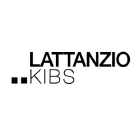WORKING WITH DG ECHO SANCTIONS | 2021 - 2027
SUPPORT TO PARTNERS
The European Commission is committed to provide practical support to its partners operating in countries subject to EU restrictive measures and to preserve the humanitarian space.
COMMISSION GUIDANCE NOTES ON THE IMPLEMENTATION OF EU SANCTIONS
The European Commission has published guidance on the implementation of some EU sanctions regimes. These Guidance Notes are tools to help, among others, DG ECHO partners in their delivering of humanitarian aid in sanctioned environments, promoting clarity on regulatory requirements.
Commission guidance note on the provision of humanitarian aid to fight the covid-19 pandemic in certain environments subject to EU restrictive measures
The Guidance Note aims to give practical guidance, in the form of questions and answers, on how to comply with EU sanctions when providing humanitarian aid, in particular medical assistance, to fight the COVID-19 pandemic in certain environments subject to EU restrictive measures.
The Guidance Note addresses a number of questions linked, among others, to exports of, and payments for protective gear, medicines, medical equipment, or the provision of medical assistance to the population in need in environments subject to EU sanctions. The note is addressed to all actors involved in the supply of humanitarian aid, such as the competent authorities of EU Member States, which manage the implementation of EU sanctions, and public and private operators (donors, NGOs, banks and other actors involved in humanitarian activities), which must comply with EU sanctions when providing assistance.
This Guidance is composed of various chapters, which cover Iran, Nicaragua, Syria and Venezuela.
Commission guidance note on the implementation of certain provisions of Council Regulation (EU) 2020/1998
This Note aims to provide guidance on the implementation of specific provisions of Council Regulation (EU) 2020/1998 concerning serious human rights violations and abuses. It seeks to address the questions that are likely to arise in the implementation of this new sanctions regime.
The EU Global Human Rights Sanctions Regime, adopted on 7 December 2020, includes a humanitarian derogation in article 5 of the Regulation. Questions 10 and 11, in particular, elaborate on it.
Commission guidance note on the implementation of certain provisions of Council Regulation (EU) 401/2013
This Note aims to provide guidance on the implementation of specific provisions of Council Regulation (EU) 401/2013 concerning restrictive measures in view of the situation in Myanmar/Burma. The purpose of the Note is to help address more common implementation issues that EU operators can face when applying EU sanctions, in particular addressing the questions that are likely to arise in the implementation of the financial sanctions provided in this sanctions regime.
The Regulation, as amended by the Council Regulation (EU) 2021/479 of 22 March 2021, includes a humanitarian derogation in article 4da. Questions 10 and 11, in particular, elaborate on it.
STATEMENT OF FACTS
DG ECHO is available to provide statement of facts (comfort letters) to partners to help them in reassuring banks and financial institutions of the legitimacy of financial transfers requested by partners to implement EU funded Humanitarian actions.
Aiming at facilitating the transfer of humanitarian funds, they state the EU support to specific humanitarian aid projects and confirm that the funds transferred from the EC to the partner are provided exclusively for humanitarian purposes.
Statement of facts are prepared on partners’ request.
Requests for such statement and for additional information are to be addressed to the contact person for the action in ECHO HQ, with ECHO-LEGAL-AFFAIRS@ec.europa.eu in copy.
EU-LEVEL CONTACT POINT
The European Commission has launched a dedicated channel to help humanitarian operators obtain information and preliminary guidance on the practicalities for requesting humanitarian derogations in the context of the COVID-19 pandemic.
When operating in sanctioned environments -and noting that under International Humanitarian Law, sanctions should not stand in the way of humanitarian aid- humanitarian operators may nonetheless encounter situations where the provision of humanitarian aid will require an authorisation for derogation. National competent authorities in the Member States grant such authorisations (i.e. humanitarian derogations). To facilitate the task of said national competent authorities, the EU-level Contact Point provides practical support to the actors involved in the provision of humanitarian aid -NGOs, donors, banks and others- in identifying the national authority responsible for assessing their request and, when possible, providing preliminary, non-binding replies to queries. It will enable those seeking to obtain a derogation for humanitarian purposes to reach out to the Commission, by using a simple and tailor-made tool.
The Commission will closely cooperate and regularly communicate with the Member States in order to streamline the requests and direct them to the relevant national authorities. In so doing, the Contact Point will contribute to the use of the national derogation systems and facilitate the provision of humanitarian aid to fight the COVID-19 pandemic, all the while being in compliance with EU sanctions.
Queries to be directed to ec-sanctions-humanitarian-contact-point@ec.europa.eu




